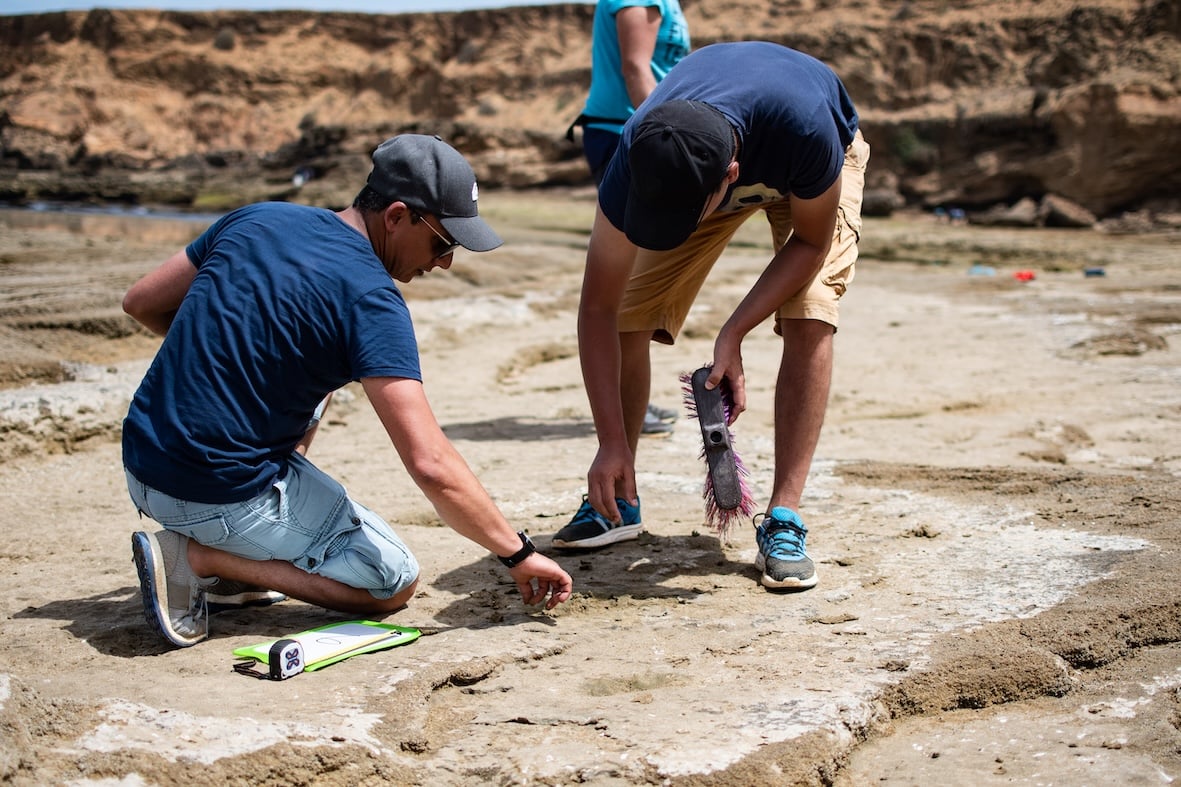
Newly discovered trails of footprints in Morocco may be some of the oldest trackways in the world, according to researchers.
The trails, considered to be the first human-made trackway in north Africa and the southern Mediterranean, were discovered on a beach near Larache, Morocco, by a research team fronted by archaeology professor Mouncef Sedrati.
The team, composed of scientists from Germany, France, Spain and Morocco, were studying boulders in the area when they discovered the footprints. The results of the study, which began in June 2022, were recently published in the journal Scientific Reports.
Photo: Courtesy of Mounsef Sedrati.
“We weren’t 100 percent sure at first with the first print, but little by little, we found a second, third, then a very clear trackway and more and more,” Sedrati said, speaking to Al Jazeera. ”That’s when the doubt disappeared. The initial traces were left by healthy Homo [sapiens] on a sandy beach sediment around 100,000 years ago.”
Some 85 footprints were discovered, and using optically stimulated luminescence dating—whereby the minerals around a historical site are scanned to determine their last exposure to heat or sunlight—Sedrati’s team believe that the tracks were made in the Late Pleistocene period during the last Ice Age.
A depth measure of the ancient footprints. Image: Courtesy of Mounsef Sedrati.
They attribute the immaculate preservation of the trackways to the type of soil in the area as well as the pattern and flow of the sea tide. The footprints had been preserved underneath layers of clay sedimentation until a recent erosion revealed their presence.
Sedrati’s team are hoping to conduct further research to determine the background of these footprints, which they have determined were made by adults, adolescents and young children. The proximity to the sea suggests that they were fishing or gathering food.
“We hope to learn about the total history of this group of humans and what they were doing there,” Sedrati said.